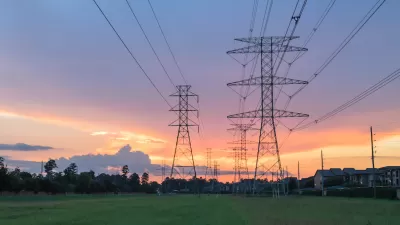Driven by student activism and less idealistic motivations for improving energy efficiency, college campuses across the Unites States are pioneering 'innovative approaches to rethinking energy infrastructure'.
"Over the past decade, colleges and universities across the country have become concerned about their environmental footprint, and today they are leading the way in developing innovative approaches to rethinking energy infrastructure," writes Sophie Quinton.
"In many cases, students have been the ones instigating these campus changes, pushing their administrators to make commitments to reduce fossil fuel emissions or to set a goal of becoming carbon neutral. For their part, schools are interested in finding energy savings and reaching greater efficiency. As climate change continues to alter energy needs and alternative fuel sources become more widely-accepted, towns and institutions may find themselves drawing lessons from the way college campuses are meeting their energy goals."
Quinton looks at three projects - the University of Iowa's biomass fuel project, the University of New Hampshire's Eco-Line, and the University of California, San Diego's campus microgrid - that demonstrate the types of cutting-edge technologies that may soon migrate to a town near you.
FULL STORY: Could You Run Your City on Oats?

Maui's Vacation Rental Debate Turns Ugly
Verbal attacks, misinformation campaigns and fistfights plague a high-stakes debate to convert thousands of vacation rentals into long-term housing.

Planetizen Federal Action Tracker
A weekly monitor of how Trump’s orders and actions are impacting planners and planning in America.

In Urban Planning, AI Prompting Could be the New Design Thinking
Creativity has long been key to great urban design. What if we see AI as our new creative partner?

Portland Raises Parking Fees to Pay for Street Maintenance
The city is struggling to bridge a massive budget gap at the Bureau of Transportation, which largely depleted its reserves during the Civd-19 pandemic.

Spokane Mayor Introduces Housing Reforms Package
Mayor Lisa Brown’s proposals include deferring or waiving some development fees to encourage more affordable housing development.

Houston Mayor Kills Another Bike Lane
The mayor rejected a proposed bike lane in the Montrose district in keeping with his pledge to maintain car lanes.
Urban Design for Planners 1: Software Tools
This six-course series explores essential urban design concepts using open source software and equips planners with the tools they need to participate fully in the urban design process.
Planning for Universal Design
Learn the tools for implementing Universal Design in planning regulations.
Gallatin County Department of Planning & Community Development
Heyer Gruel & Associates PA
JM Goldson LLC
City of Camden Redevelopment Agency
City of Astoria
Transportation Research & Education Center (TREC) at Portland State University
Jefferson Parish Government
Camden Redevelopment Agency
City of Claremont



























